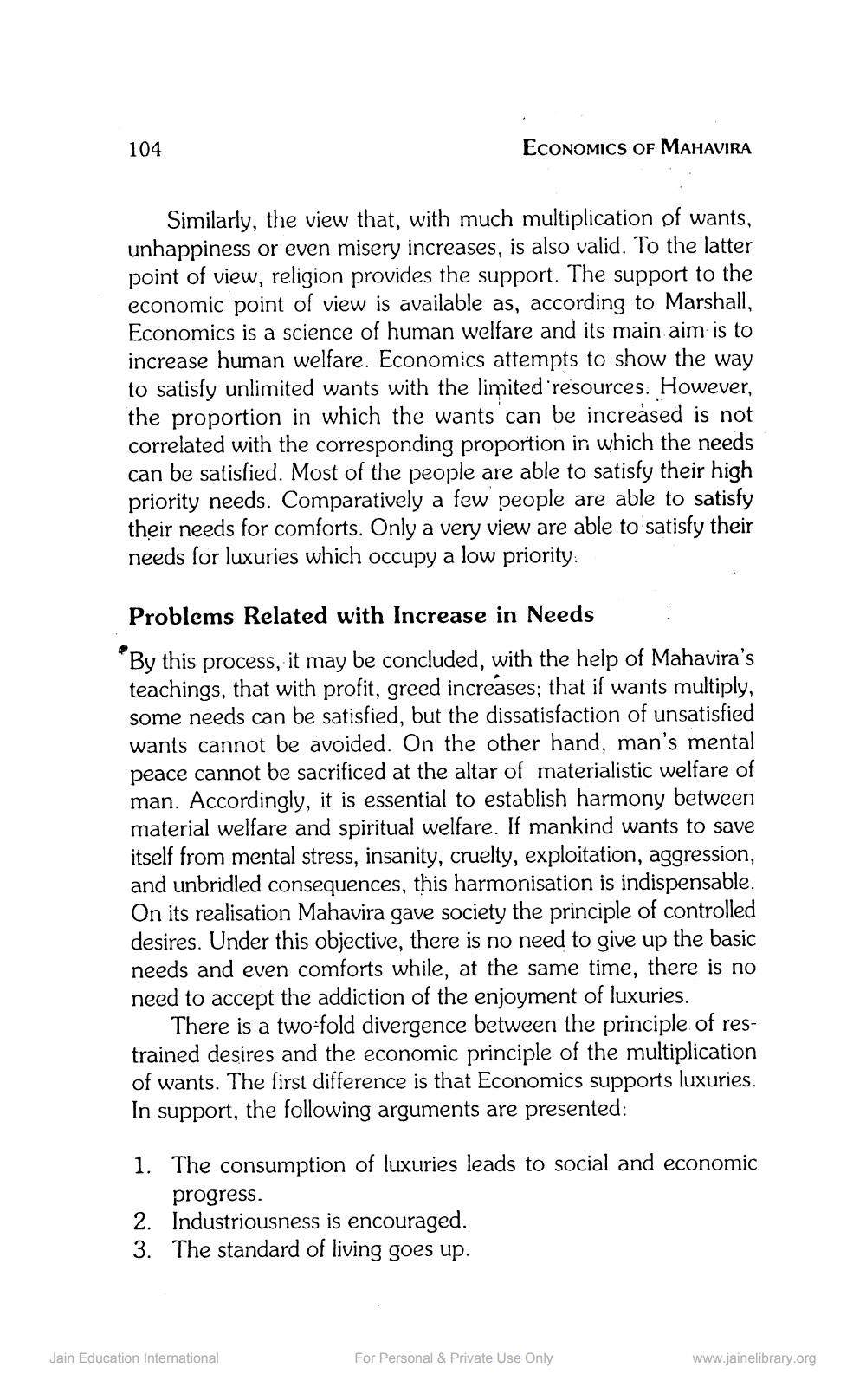________________
104
ECONOMICS OF MAHAVIRA
Similarly, the view that, with much multiplication of wants, unhappiness or even misery increases, is also valid. To the latter point of view, religion provides the support. The support to the economic point of view is available as, according to Marshall, Economics is a science of human welfare and its main aim is to increase human welfare. Economics attempts to show the way to satisfy unlimited wants with the limited resources. However, the proportion in which the wants can be increased is not correlated with the corresponding proportion in which the needs can be satisfied. Most of the people are able to satisfy their high priority needs. Comparatively a few people are able to satisfy their needs for comforts. Only a very view are able to satisfy their needs for luxuries which occupy a low priority:
Problems Related with Increase in Needs By this process, it may be concluded, with the help of Mahavira's teachings, that with profit, greed increases; that if wants multiply, some needs can be satisfied, but the dissatisfaction of unsatisfied wants cannot be avoided. On the other hand, man's mental peace cannot be sacrificed at the altar of materialistic welfare of man. Accordingly, it is essential to establish harmony between material welfare and spiritual welfare. If mankind wants to save itself from mental stress, insanity, cruelty, exploitation, aggression, and unbridled consequences, this harmonisation is indispensable. On its realisation Mahavira gave society the principle of controlled desires. Under this objective, there is no need to give up the basic needs and even comforts while, at the same time, there is no need to accept the addiction of the enjoyment of luxuries.
There is a two-fold divergence between the principle of restrained desires and the economic principle of the multiplication of wants. The first difference is that Economics supports luxuries. In support, the following arguments are presented:
1. The consumption of luxuries leads to social and economic
progress. 2. Industriousness is encouraged. 3. The standard of living goes up.
Jain Education International
For Personal & Private Use Only
www.jainelibrary.org




